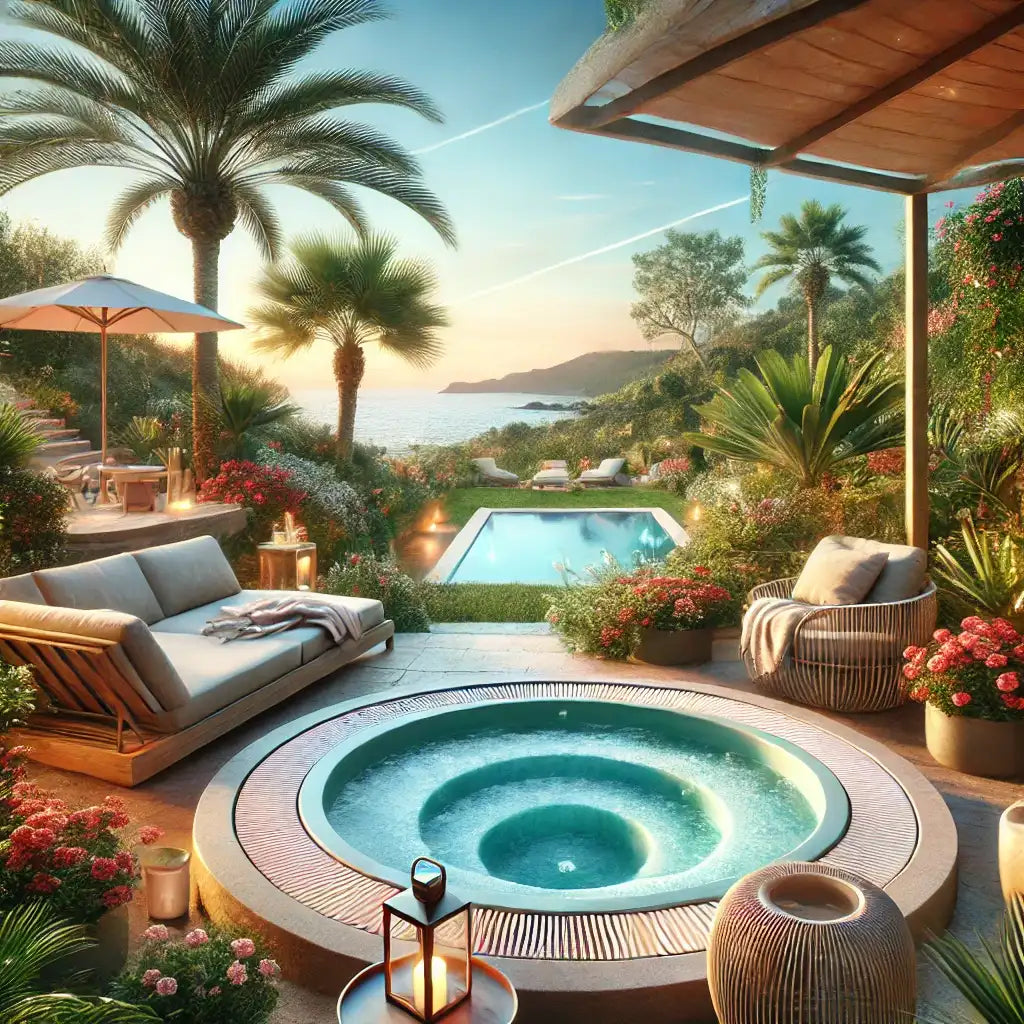Article: Pool care after Sahara rain: How to make your water crystal clear again
Pool care after Sahara rain: How to make your water crystal clear again


How to clean your pool quickly and effectively after Sahara rain in the Balearic Islands
The sun shines almost year-round on the Balearic Islands. However, every now and then, the so-called Sahara rain causes unwanted pollution. This desert dust from the Sahara is carried by the wind across the Mediterranean and leaves a layer of fine sand and dirt in the pool. If you own a pool in Mallorca, Ibiza, Menorca, or Formentera, you know how important it is to act quickly after Sahara rain. We have the best tips for you on how to effectively clean your pool and get the water crystal clear again.
1. Quickly remove surface dirt
The first step after a Sahara rainstorm is to quickly remove any large debris. Use a net to remove leaves, sand, and other visible particles from the surface. This prevents the debris from entering the filter and making cleaning more difficult. A quick response prevents deeper contamination of the pool water.
2. Remove fine particles with the pool vacuum
Once the coarse debris has been removed, it's time to remove the fine dust from the pool floor. Since desert sand and dust tend to settle, using a pool vacuum is recommended. If you have a robotic pool cleaner, this is especially useful for getting the job done quickly and efficiently. A pool vacuum can also be used for manual cleaning.
3. Run the filter system intensively
The sand and dust from the Sahara rain not only settle on the pool floor but can also place a heavy strain on the filter system. Therefore, check that the filter is clean and let it run for several hours to thoroughly filter the water. Backwashing the filter can significantly increase its performance. Regular maintenance is crucial for clean water, especially in popular vacation destinations like Mallorca and Ibiza, where swimming pools are heavily used.
4. Test and adjust water values
Saharan rain often affects the pH of pool water. To ensure your water is back to optimal condition, you should check the pH and chlorine or bromine levels. A pH between 7.2 and 7.6 is ideal. If the value deviates, the chemicals will need to be adjusted to stabilize the water again.
5. Shock chlorination in case of heavy contamination
If your pool is cloudy or yellowish after the Sahara rains, you may need to shock chlorine. To do this, add a large amount of chlorine to the water and run the filter pump for several hours. Wait until the water is clear and avoid using the pool during the shock chlorination.
6. Fine cleaning with flocculants
For the finest dirt particles that the filter can't grasp, a flocculant is suitable. These substances bind the small dirt particles and cause them to clump together into larger flakes, which can then be removed by the filter. This is especially useful if sand or dust is still floating in the water after a Saharan rainstorm.
7. Take preventive protective measures
To prevent future pollution from Saharan rains, you can use special pool covers that protect the pool when rain threatens. Regular maintenance of the filtration system and careful water chemistry will also help to quickly clear the water.
Conclusion: How to keep your pool crystal clear despite Sahara rain
Even if a Saharan downpour can contaminate your pool for a short time, it's no challenge that can't be overcome. With a combination of thorough cleaning, targeted filtration, and optimal water care, your pool in the Balearic Islands will be sparkling clean and inviting again in no time. Enjoy the next sunny day on the terrace or in the garden – with a crystal-clear pool!
Your pool, always in top shape – even after the Sahara rains!





